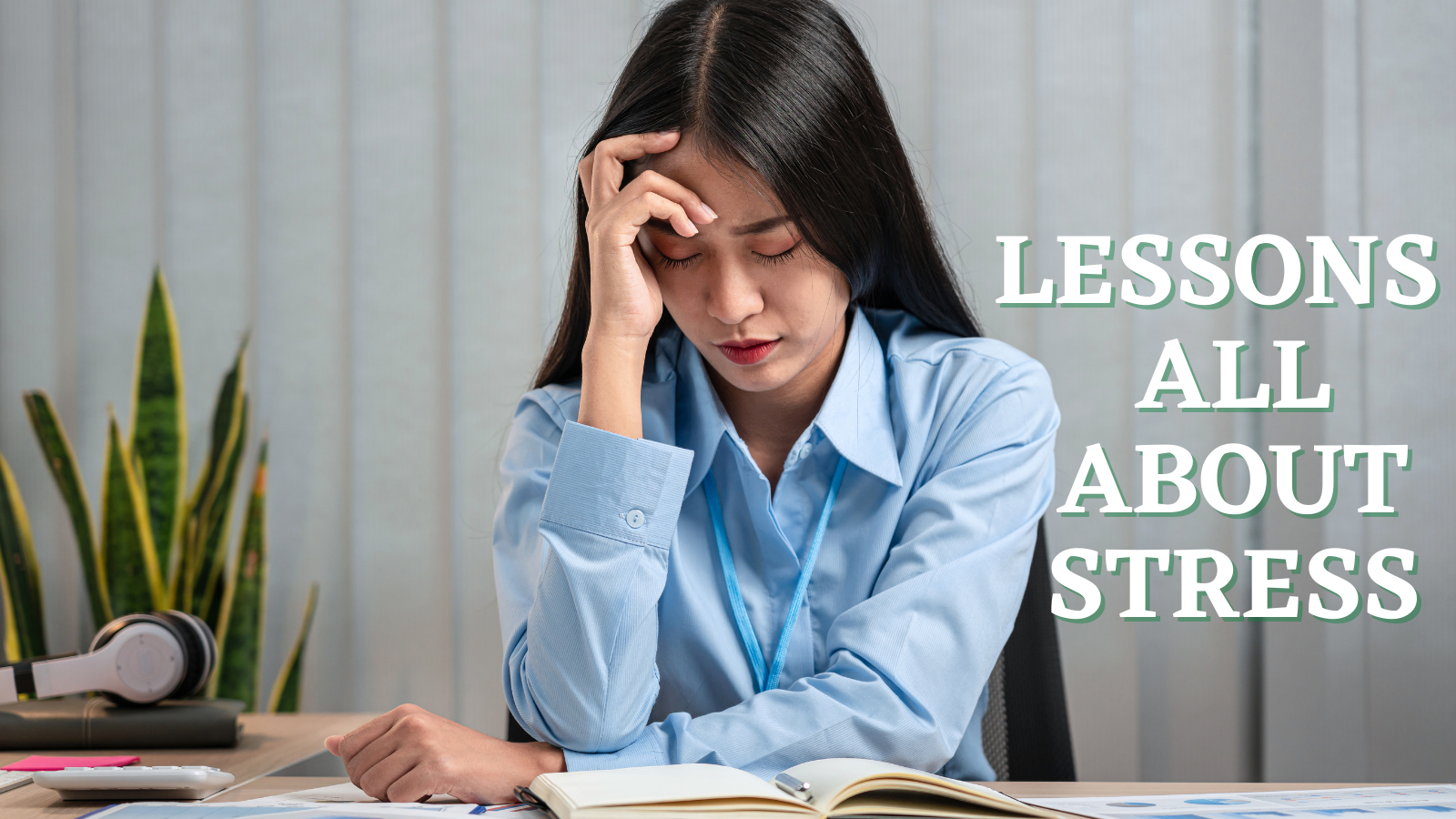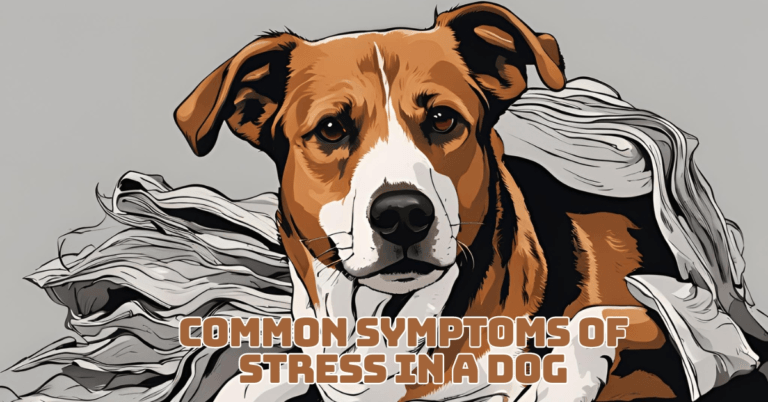Lessons That Will Teach You All About Stress

Lessons That Will Teach You All About Stress
What Is Stress?
Stress is our body's reaction to pressure. Stress can be caused by various conditions or occurrences in one's life.
It is frequently triggered when we encounter something novel, unexpected, or threatening to our sense of self or when we believe we have little control over a situation.
We all react differently to stress. Genetics, early life experiences, personality, and social and economic situations can influence our coping ability.
When we are stressed, our bodies produce stress hormones, which cause us to fight or flee and activate our immune system. This enables us to react rapidly in risky situations.
This stress reaction can sometimes be beneficial: it can help us overcome anxiety or pain to run a marathon or deliver a speech.
When a stressful incident is over, our stress hormones usually return to normal soon, with no long-term repercussions.
However, excessive stress might have a harmful impact. It can keep us in a constant state of fight or flight, leaving us exhausted or unable to cope. This can have a long-term impact on our physical and emotional health.

Symptoms Of Stress
The most hazardous aspect of stress is how quickly it can overwhelm you. You grow accustomed to it and begin to feel comfortable, even typical.
You may not be aware of how much stress overload impacts you, even though it's taking a significant toll. As a result, it's critical to be aware of stress overload's most prevalent warning signs and symptoms.
1. Physical Symptoms Of Stress
- Dizziness or headaches
- Muscular tenseness or discomfort
- Stomach issues
- Chest ache or a racing heart
- Sexual issues
2. Mental Symptoms Of Stress
- Being forgetful
- Feeling overwhelmed
- Difficulty concentrating
- Struggling to make decisions
- Constantly worrying
3. Changes In Behaviour Due To Stress
- Being irritable and snappy
- Drinking or smoking more
- Sleeping too much or too little
- Avoiding certain places or people
- Eating too much or too little

Is All Stress Harmful?
Stress isn't always a terrible thing. It was essential to our hunter-gatherer forefathers' survival and remains so in today's environment.
It can be beneficial when it helps you avoid an accident, fulfill a tight deadline, or retain your cool during the chaos.
We all experience stress occasionally, but what one person finds unpleasant may not be the same as what another finds stressful.
Public speaking is an example of this. Some people enjoy the rush, while the mere prospect immobilizes others.
Stress, on the other hand, isn't always a terrible thing. For example, Your wedding day may be considered a positive stress. However, stress should only last a short time.
When you've gotten over the fight-or-flight response, your heart rate and respiration should settle down, and your muscles should relax. Your body should revert to its original form quickly, with no long-term harmful consequences.
On the other hand, severe, regular, or long-term stress can be emotionally and physically damaging.
It's also quite prevalent. When asked, 80 percent of Americans said they'd had at least one stress symptom in the previous month. Twenty percent said they were under extreme stress.
Because of the nature of life, it is impossible to avoid stress entirely. We can, however, learn to avoid it whenever feasible and handle it when it is unavoidable.

Causes Of Stress
1. Health
Aging, a new disease diagnosis, and symptoms or complications from a present condition can increase stress.
Even if you do not have any health issues, someone close to you may be dealing with an illness or condition.
This can also boost your stress levels. The American Psychological Association (APA) reports that more than half of caregivers are overwhelmed by the care their family members require.

2. Relationships
Every person in our lives brings us stress. It might be a family member, a close friend, or a coworker.
Toxic people exist in all aspects of our lives, and the stress we experience due to these connections can impact our physical and mental health.
There are several sources of stress in love relationships, and when couples are continually under strain, their relationship may disintegrate.
Typical relationship stressors include:
- Being too preoccupied to spend time together and share duties
- Intimacy and sex have become increasingly infrequent due to workload, health issues, and other factors.
- You and your partner are not communicating because of abuse or control in the relationship.
- You and your partner are abusing alcohol and drugs.
- You or your partner are considering divorce.
You can also avoid or argue with the person or become easily agitated by their presence.
Personal relationship stress can sometimes be linked to our interactions with people on social media sites like Facebook.
For example, social media inherently encourages comparing yourself to others, leading to feelings of inadequacy and stress. It also facilitates bullying.

3. Financial Issues
According to the American Psychological Association (APA), money is the leading cause of stress in the United States.
According to a 2015 APA survey, 72 percent of Americans were anxious about money at least some of the time during the preceding month.
Most survey participants said that money was a significant source of stress, with 77 percent experiencing serious financial concerns.
Financial stress can manifest itself in a variety of ways, including:
- Disputes over money with family and friends
- Fear of opening mail or answering the phone
- Feeling remorse for spending money on non-essentials
- Concerned about money and feeling anxious about it
Long-term financial stress causes distress, raising blood pressure and producing headaches, upset stomach, chest pain, insomnia, and an overall sensation of sickness.
Financial stress has also been related to various health issues such as depression, anxiety, skin disorders, diabetes, and arthritis.

4. Emotional Issues
It might add to your stress when you cannot relate to someone or when you need to communicate your emotions but cannot.
Mental health conditions, such as sadness and anxiety, exacerbate the emotional stress. Positive emotional outlets and therapy for mental health issues are critical to stress management.
5. Personal Convictions
Arguments concerning personal, religious, or political ideas can be complex if you cannot detach yourself from the conflict.
Stress can also be caused by significant life experiences that drive you to rethink your views. This is especially true if your opinions differ from those of your closest friends and family.
6. Life-Changing
The death of a loved one, a career shift, a move, and sending a child off to college are significant life transitions that can be stressful. Even favourable changes, such as retirement or marriage, can create tremendous stress.

7. Parenting
Parents are frequently confronted with juggling a career, domestic responsibilities, and raising children. These demands cause parenting stress.
Parenting stress can lead to harsh, hostile, and authoritarian parenting and harm the quality of parent-child connections.
For example, if you don't have open communication, your child may not seek your counsel, or you and your child may dispute frequently.
Being low-income, working long hours, single parenting, marriage or relationship problems, or raising a child with a behavioural disorder or developmental handicap can all be parental stress.
8. Daily Life Busyness
Our daily stressors are our daily annoyances. They include misplacing keys, being late, and forgetting to carry an essential item when you leave the house.
Usually, these are small setbacks, but if they become frequent, they can cause anxiety and negatively impact physical and/or psychological health.
The stress of being overly occupied is becoming more widespread. People are busier than ever, which adds much pressure to their lives.
Busyness can be caused by necessity, such as working a second job. In other instances, it is due to guilt or a desire not to disappoint others.
People may be unable to say “no,” resulting in little time for themselves, or they may disregard their fundamental needs, such as eating well and exercising, due to a lack of time.
Types Of Stress
While there are numerous varieties of stress, according to research studies on the types of stress in psychology, stress may be classified into three categories:
- Acute stress
- Episodic acute stress
- Chronic stress
1. Acute Stress
Everyone experiences acute stress. It is the body's first response to a new and challenging environment. It's the kind of anxiety you could experience if you narrowly avoid a vehicle accident.
Acute stress might also result from doing something you enjoy. It's the slightly terrifying yet thrilling sensation you get when riding a roller coaster or skiing down a high mountain slope.
These brief bouts of intense stress are usually harmless. They might even be beneficial to your health. Difficult experiences train your body and brain to respond in the most excellent way possible in future stressful situations.
Your body's systems should return to normal after the threat has passed. However, severe acute stress tells a particular story.
This type of stress, such as when confronted with a potentially life-threatening circumstance, can result in post-traumatic stress disorder (PTSD) or other mental health issues.
Symptoms Of Acute Stress
The more items on the list below you can tick off, the more likely you are to have acute stress.
- Anger
- Headaches
- Heartburn
- Elevated blood pressure
- Irritability
- Back pain
- Acidic stomach
- Rapid heartbeat
- Anxiety
- Jaw pain
- Flatulence
- Sweaty palms
- Depression
- Tendon and ligament problems
- Diarrhea or constipation
- Heart palpitations
- Irritable bowel syndrome (IBS)
- Cold hands or feet
- Dizziness
- Chest pain
Causes Of Acute Stress
Acute stress disorder is caused by experiencing or witnessing a severe incident. The following are some instances of traumatic experiences that could result in acute stress disorder:
- Seeing a shooting
- Getting into a car accident
- Being physically or sexually attacked while fighting in a war
- Witnessing a loved one's untimely death or the brutal death of a stranger
- Having a near-death experience
- Experiencing a natural disaster
According to research, roughly one-sixth of persons who survive vehicle accidents will acquire acute stress disorder. Certain risk factors also increase the likelihood of developing acute stress disorder. Some of the risk factors are as follows:
- You are a female by birth
- The traumatizing experience was intense
- Possessing an avoidant personality
- Previous exposure to traumatic occurrences
- Having a history of mental health disorders before the traumatic event
Acute Stress Treatment
A healthcare practitioner will collaborate with a person to establish a treatment plan tailored to their specific needs.
Treatment for ASD focuses on symptom reduction, coping mechanism improvement, and PTSD prevention.
ASD Treatment Methods May Include:
1. Cognitive-Behavioural Treatment (CBT)
CBT is typically recommended as the first-line treatment for patients with ASD by doctors. Working with a skilled mental health professional to build appropriate coping techniques is part of CBT.
2. Mindfulness
Mindfulness-based interventions teach stress and anxiety management skills. Meditation and breathing exercises are examples of such practices.
3. Medications
To help treat a person's symptoms, a healthcare provider may prescribe antidepressants or anticonvulsants.
2. Episodic Acute Stress
Some people have these mini-crises regularly and live in a condition of tension. Their lives may overburden them, or they may take on too much.
If you are prone to worry, your body will become stiff or irritated. The symptoms are similar, but they appear more frequently and accumulate.
Perhaps your organization is poorly managed, your supervisor is stressed, and they pass on emergencies to you. Those looming deadlines keep appearing.
We can't always take huge, fast moves to fix our difficulties in modern life. Instead, we might begin with little steps that add up over time.
You may need to exercise more time and evaluate your money if you need to stop. To modify your circumstances or your reactions to them, you may require the assistance of a therapist.
A habit of episodic acute stress can wreak havoc on your relationships and job over time.
This risk increases if you use unhealthy coping mechanisms like binge drinking, overeating, or clinging to negative relationships. Many people also gradually abandon pleasure activities or significant aspirations.
If not appropriately managed, episodic acute stress can lead to significant ailments such as heart disease or clinical depression.
Symptoms Of Episodic Acute Stress
When we endure acute stress regularly, we develop episodic stress. It frequently affects those who take on too much, those who believe they are under self-imposed strain, and external demands for attention.
In such instances, hatred and anger are expected outcomes. Episodic stress is typical among those who worry a lot, resulting in anxiety and despair.
The more items on the list below you can tick off, the more likely you will have Episodic Acute Stress.
- Memory problems
- Irritability or short temper
- Aches and pains
- Eating more or less
- Inability to concentrate
- Agitation, inability to relax
- Diarrhea or constipation
- Irregular sleep pattern
- Poor judgment
- Feeling overwhelmed
- Nausea or dizziness
- Isolating behaviour
- Negativity
- Loneliness and isolation
- Chest pain or rapid heartbeat
- Procrastinating or neglecting responsibilities
- Anxious or racing thoughts
- Depression or General Unhappiness
- Loss of sex drive
- Using alcohol, cigarettes, or drugs to relax
- Constant worrying
- Moodiness
- Frequent colds
- Nervous habits (biting nails, pacing)
Episodic Acute Stress Treatments
A treatment approach for Episodic Acute Stress Disorder may include lifestyle changes, therapy, and medication.
Therapists may advise clients to make lifestyle adjustments, such as changing employment. CBT can teach patients how to respond to triggers, and medication can help when tension is too high.
3. Chronic Stress
Chronic stress is a long-term and continual state of tension that, if left untreated, can harm one's health. It can be induced by normal pressures such as family, job, or catastrophic events.
Chronic stress arises when the body is regularly exposed to stressors with such frequency or intensity that the autonomic nervous system does not have an adequate opportunity to trigger the relaxation response. This indicates that the body is always in a state of physiological alertness.
This impacts almost every system in the body, either directly or indirectly. People were designed to endure acute stress, which is short-lived, but not chronic stress, which is consistent over time.
To begin treating chronic stress, it is necessary to understand what it is, what causes it, and how it affects the entire body.
Symptoms Of Chronic Stress
Chronic stress impacts both the mind and the body. It causes physical and psychological symptoms, impairing a person's daily ability to function. The severity of these symptoms varies from person to person.
The following are some of the most prevalent symptoms of chronic stress:
- Aches and pains
- Decreased energy
- Difficulty sleeping
- Disorganized thinking
- Fatigue
- Feeling a loss of control
- Feelings of helplessness
- Frequent illnesses and infections
- Gastrointestinal complaints
- Headaches
- Irritability
- Muscle tension
- Nervousness and anxiety
- Trouble concentrating
- Upset stomach
Causes Of Chronic Stress
This persistent stress response is all too common in our modern lives. Everything from high-pressure jobs to loneliness to congested highways can put the body under perceived threat and chronic stress.
In this example, our fight-or-flight response, designed to assist us in dealing with potentially life-threatening events (such as swerving to avoid a vehicle crash), can wear down our bodies and cause us to feel physically or mentally ill.
According to estimates, stress-related issues account for 60—80 percent of primary care visits. 1
That is why it is critical to learn stress management skills and make healthy lifestyle adjustments to protect yourself from the harmful effects of chronic stress.
Types Of Chronic Stress
However, if you lack the right tools and knowledge, too much stress might hamper your growth and development.
Stress is a complicated phenomenon with numerous identities that can manifest in various ways.
Here are four kinds of chronic stress that can stifle your growth.

1. Emotional Stress
Emotional tension is difficult to manage because it quickly leads to less-than-ideal behaviour, which results from life conditions that don't go your way.
Emotional stress can manifest as quickly being angry, moody, overwhelmed with feelings of having little control over your life, feeling horrible about yourself, and having difficulties quieting your mind.
Regardless of your symptoms, unmanaged emotional stress leads to avoidant behaviours that push you further away from the solution.
It's critical to realize that you have no influence over the world around you or how people react to you.
However, you have power over how you respond to those events. Self-awareness is the most vital trait to cultivate when dealing with emotional stress.
Committing to mindfulness practice, such as meditation or writing your thoughts, can help you build self-awareness to make logical judgments rather than ones fuelled simply by emotions.

2. Relational Stress
Whether it's a spouse who doesn't feel like they're getting enough attention because of your job schedule or friends who peer pressure you into old behaviours that no longer serve you—critical it's to arm yourself with the tools to deal with these different sorts of relational stress.
Don't, for example, be critical of your partner. Recognize their issues and then respond to them rather than reacting to them.
The amount and type of emotion involved frequently determine the difference between your response and reaction.
Your knee-jerk reaction will be tempered if you choose to respond after listening. Finally, another effective strategy is to halt and try to see the world through another person's eyes.
Your pals may view your absence from weekend hangout areas as a sign that you're leaving them behind rather than simply attempting to work on your personal development.
3. Environmental Stress
Your surroundings can either move you forward or keep you stagnant and frustrated. Improving your environmental stressors begins with raising awareness and evaluating the areas you frequent.
What kind of people do you hang out with? How do you feel about your city? Does the inside of your house make you happy? What about the setting in which you work?
If you're not inspired and energized by such activities, you're quietly amassing tension. If work is an issue, you may not be able to redesign your workplace or give your two-week notice, but you can incorporate aspects that evoke happy feelings and emotions.
You can put tiny plants or photos on your desk to remind you why you're working so hard or listen to audiobooks on your commute to work to be inspired.
4. Work-Related Stress
Work stress is one of the most dangerous types of chronic stress since it follows you everywhere. You've arrived home but can't unwind because you're either exhausted from the day or worried about what's to come.
The first step in dealing with work stress is to do a mental brain dump by jotting down your workplace stressors. Identify the large rocks after you've written them all down.
The significant rock stressors are those that, if addressed, will deliver the greatest return on investment in stress relief.
After identifying your stressors, make a list of your default reactions to those stressors. Next, establish healthy boundaries by setting a strict time limit for work emails and activities.
While stress is unavoidable in everyday life, it does not have to be your kryptonite when attaining what you desire. There's no need to wish for tension to disappear magically.
Instead, identify the unique stress masks and use specific techniques to deal with those varied masks as they unavoidably appear in your life.
Chronic Stress Treatments
While persistent stress can severely influence your physical and emotional health, therapy alternatives are available to help you heal and recover.
In Austin, Texas, Dr. Emily Stone, a certified marital and family therapist, emphasizes a holistic approach when seeking treatment, stating that “all parts of us need nurturing to recover.”
The following treatments are beneficial in reducing chronic stress.
1. Cognitive Behavioral Therapy (CBT)
Dr. Holly Schiff, a psychologist in Greenwich, Connecticut, suggests cognitive behavioural therapy as a treatment option (CBT).
“We use [CBT] to teach patients to recognize negative thought patterns that contribute to chronic stress,” she explains.
“Our goal is to assist individuals in changing their stress-related behaviours, attitudes, and feelings into more realistic, beneficial ones.”

2. Eating A Healthy Diet
What you eat can influence dealing with stress and anxiety. Several studies imply that the more people eat a Western or highly processed diet, the more likely they will suffer from sadness and anxiety.
Those who follow a Mediterranean diet, consisting primarily of fruits and vegetables, seafood, and healthy fats, are less likely to acquire a mental condition.
3. Improve Your Sleeping Habits
Chronic stress can deprive you of much-needed sleep by keeping you awake, worried, or difficult to relax.
The American Psychological Association advised adjusting your sleeping habits to allow your body to unwind before attempting to sleep.
Begin relaxing activities such as reading a book, taking a bath, listening to music, or meditating a couple of hours before your regular bedtime. Avoid watching television or using your computer or smartphone in bed or before bed.
If you wake up with worries, write them down and persuade yourself that you can deal with them in the morning after a good night's sleep.

4. Exercise Regularly
According to research, regular exercise can help keep cortisol levels in balance. Even small bursts of regular activity can relieve stress and improve cognitive performance in those who have been under stress for a long time.
Consequently, Dr. Stone advises patients suffering from chronic stress to engage in essential daily activities, such as a 20-minute stroll.
5. Techniques For Relaxation
“In some circumstances, you may not be able to eliminate or reduce stress,” adds Dr. Priyanka. “So you start focusing on methods to cope with it better.”
Yoga, prayer, guided imagery, mindfulness meditation, and deep breathing have all been demonstrated to alleviate the symptoms of chronic stress. According to the study, these activities result in lower cortisol levels.

6. Understand The Complexities
According to the American Psychiatric Association (APA), chronic stress can cause various physical and mental health issues.
Physical symptoms include muscle aches and pains, high blood pressure, sleeplessness, and other illnesses caused by a compromised immune system.
According to the APA, chronic stress can also lead to heart disease and obesity because people try to relieve stress by eating comfort foods.
Depression and anxiety are two more potential consequences. Chronic stress causes sadness, inability to focus, irritation, weariness, and an increased risk of drug addiction.
Unfortunately, we cannot permanently eliminate the source of our stress. However, we can employ several coping behaviours and tactics to help us lessen the unpleasant feelings and physiological impacts of stress.
7. Support From Family And Friends
Leaning on family and friends for support can help protect you from the detrimental impacts of prolonged stress.
While some people may avoid social engagement during stressful times, data suggest that developing a trustworthy support system can enhance resilience to stressful stimuli.
Simple Ways To Relieve Stress
Here, I’ve added some tips. If you can follow, you can get relief from stress.
1. Maintain A Healthy Diet To Relieve Stress
Your nutrition impacts all aspects of your health, including mental health.
According to research, those who eat a diet high in ultra-processed foods and added sugar are more likely to have high levels of perceived stress.
Chronic stress might cause you to overeat and eat highly appealing foods, impairing your general health and happiness.
Furthermore, not eating enough nutrient-dense whole foods may raise your risk of deficiency in nutrients essential for stress and mood regulation, such as magnesium and B vitamins.
Limiting highly processed meals and beverages and increasing your consumption of whole foods such as vegetables, fruits, legumes, seafood, nuts, and seeds will help guarantee that your body is properly fed. As a result, your stress resilience may improve.

2. Spend Time With Family And Friends To Relieve Stress
Friends and relatives can provide social support to help you get through challenging situations and manage stress.
A research of 163 Latinx college students found that lower levels of support from friends, family, and romantic partners were connected with loneliness, depressive symptoms, and perceived stress.
Having a social support system for your overall mental health is critical. Social support groups might be beneficial if you feel lonely and don't have friends or family to turn to. Consider joining a club or sports team or volunteering for a worthy cause.
3. Reduce Your Phone And Screen Time
Smartphones, computers, and tablets have become inevitable in many people's daily lives. While these gadgets are frequently required, utilizing them too frequently may increase stress levels.
Many studies have found a correlation between excessive smartphone use and “iPhone addiction” and higher levels of stress and mental health concerns.
Spending too much time in front of screens is related to lower psychological well-being and increased stress levels in adults and children.
Furthermore, screen usage may poorly impact sleep, leading to elevated stress levels.

4. Avoid Procrastination As Much As Possible
Another strategy to manage your stress is prioritizing your tasks and preventing procrastination. Procrastination can reduce your productivity and force you to scramble to catch up.
This can lead to stress, negatively impacting your health and sleep quality. Procrastination was associated with higher stress levels in a study of 140 Chinese medical students.
Procrastination and delayed stress reactions were also linked to more negative parenting practices, including punishment and rejection,
If you frequently procrastinate, developing the practice of preparing a to-do list sorted by priority may be beneficial.
Set reasonable deadlines for yourself and work your way down the list. Work on the tasks that must be completed today and give yourself blocks of quiet time. Changing tasks or multitasking can be stressful in and of itself.
5. Mindfulness Practice
Mindfulness refers to practices that bring you back to the present moment.
Meditation and mindfulness-based cognitive therapy (MBCT), a kind of cognitive behavioural therapy, are two stress-reduction approaches that use mindfulness.
Even for short periods, meditating regularly may help improve your mood and reduce stress and anxiety symptoms.
Numerous books, apps, and websites can teach you the basics if you want to practice meditation. There may also be MBCT-trained therapists in your region.

6. Consider Taking Vitamins
Several vitamins and minerals are vital in your body's stress response and mood regulation. As a result, a lack of one or more nutrients may impact your mental health and ability to cope with stress.
Furthermore, some research suggests that specific nutritional supplements may help reduce stress and enhance mood. For example, your magnesium levels may be reduced when constantly stressed.
Because this mineral is essential for your body's stress reaction, you must obtain enough of it every day. Magnesium supplementation has been demonstrated to reduce stress in persistently stressed persons.
An 8-week study of 264 adults deficient in magnesium discovered that ingesting 300 mg of this mineral daily helped reduce stress levels. This quantity of magnesium was even more beneficial when combined with vitamin B6.
Other supplements that help relieve stress include Rhodiola, Ashwagandha, B vitamins, and L-theanine.
Conversely, dietary supplements may not be appropriate or safe for everyone. If you want to use supplements to relieve stress, visit your doctor first.

7. Spend Quality Time With Your Pet
Having a pet can help you relax and enhance your mood. When you cuddle or touch your pet, your body produces oxytocin, a hormone associated with happiness.
Furthermore, studies demonstrate that pet owners, particularly those who own dogs, have higher life satisfaction and self-esteem, lower loneliness and anxiety, and more positive moods.
A pet can also help relieve stress by giving you a sense of purpose, keeping you busy, and offering companionship.

8. Reduce Caffeine Consumption
Caffeine is a central nervous system stimulant in coffee, tea, chocolate, and energy drinks. Excessive consumption can exacerbate and heighten feelings of anxiousness.
Furthermore, excessive use may interfere with your sleep. As a result, tension and anxiety symptoms may worsen.
Caffeine tolerance levels vary from person to person. If caffeine makes you jittery or agitated, try substituting decaffeinated herbal tea or water for coffee or energy drinks.
Although several studies demonstrate that coffee is healthful when consumed in moderation, it is recommended that caffeine intake be limited to 400 mg per day, equal to 4–5 cups (0.9–1.2 L) of coffee.
However, caffeine-sensitive persons may suffer more significant anxiety and stress after taking considerably less caffeine than this, so it's vital to evaluate their specific tolerance.

9. Set Limits And Learn To Say NO
Some stressors are beyond your control, but not all. Taking on too much may increase your stress load and decrease your time for self-care.
Taking charge of your personal life will help you reduce stress and safeguard your mental health.
One approach to accomplish this is to say “no” more frequently. This is especially important if you take on more than you can handle, as juggling multiple duties might overwhelm you.
Being picky about what you take on — and saying “no” to things that would unnecessarily add to your workload — might help you lower your stress.
Furthermore, setting boundaries, especially with people who contribute to your stress, is an intelligent method to protect your well-being.
This might be as simple as asking a friend or family member not to drop by unexpectedly or cancelling standing plans with a person prone to causing controversy.

10. Attend A Yoga Class
Yoga has grown in popularity as a stress-relieving and exercise practice for people of all ages.
While yoga methods vary, most have the same purpose: to connect your body and mind by enhancing body and breath awareness.
Several studies have found that yoga can help lower stress, anxiety, and depression symptoms. Furthermore, it has the potential to improve psychological well-being.
These advantages appear tied to their influence on your nervous system and stress response.
Yoga may help reduce cortisol levels, blood pressure, and heart rate while raising gamma-aminobutyric acid levels, a low neurotransmitter in patients with mood disorders.

11. Spend Time Outside In Nature
Spending more time outside may help reduce stress. Studies have shown that spending time in green spaces, such as parks and forests, and being immersed in nature are good strategies for reducing stress.
An analysis of 14 studies indicated that spending as little as 10 minutes in nature could enhance psychological and physiological markers of mental well-being in college-aged persons, such as perceived stress and happiness.
Hiking and camping are excellent possibilities, but not everyone enjoys or has access to these activities. Even in a city, you can find green places like parks, arboretums, and botanical gardens.

12. Deep Breathing Practice
Stress activates your sympathetic nervous system, causing your body to go into fight-or-flight mode.
During this reaction, stress hormones cause physical symptoms such as a faster heartbeat, faster breathing, and constricted blood vessels.
Deep breathing exercises may activate your parasympathetic nervous system, which regulates the relaxation response.
Diaphragmatic breathing, abdominal breathing, belly breathing, and timed respiration are all examples of deep breathing exercises.
The purpose of deep breathing is to concentrate one's attention on the breath, making it slower and more profound.
When you take a deep breath through your nose, your lungs expand entirely, and your belly rises. This helps lower your heart rate, giving you a sense of calm.
NOTE: Sources From PubMed Central (a highly respected database from the National Institutes of Health)

Conclusion
Although stress is an unavoidable aspect of life, chronic stress hurts your physical and mental health.
Fortunately, several evidence-based treatments can assist you in reducing stress and improving your general psychological well-being.
Exercise, mindfulness, spending time with a pet, limiting screen time, and spending more time outside are beneficial strategies.
I trust you enjoyed this article on the Lessons That Will Teach You All About Stress. Please stay tuned for more blog posts soon. Take care!
JeannetteZ
>>>Understanding Stress vs Strain: Keys To Better Mental Wellness<<<
>>>Are you interested in Natural Healing And Stress Relief through Herbs? Please click here for my #1 Recommendation<<<
Your Opinion Is Important To Me
Do you have thoughts, ideas, or questions? I would love to hear from you. Please leave me your questions, experience, and remarks about this article on the Lessons That Will Teach You All About Stress in the comments section below. You can also email me at Jeannette@Close-To-Nature.org.
Disclosure
This post may contain affiliate links. I earn from qualifying purchases as an Amazon Associate and other affiliate programs. Please read my full affiliate disclosure.
You might also enjoy these blog posts:
The Top Most Important Container Gardening Tips
A Comprehensive Guide To Healing Naturally
Best Ways To Grow Tamarind In Your Home Garden
Your Essential Companion Planting Guide
















